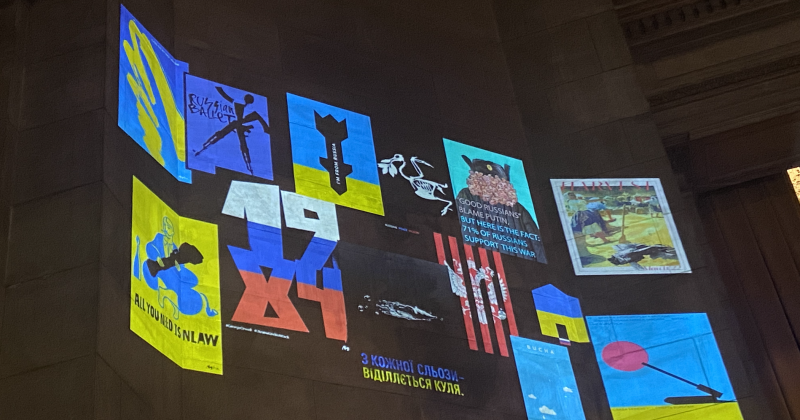
Art in Time of War: Celebrating the Resilience of Ukrainian Culture
By Guest Writer Emma McDonnell
Art is a means to document, a means to capture emotions, feelings, and history. Art has the capacity to chronicle and tell the story of a bygone era—to depict events and places which the world no longer knows of. And ultimately, art is a marker of the past, present, and future. As such, it ties us to periods and moments–persevering through devastating and disastrous times such as war and conflict.
Hosted by the Harriman Institute together with the President’s Office of Columbia University, Art in Time of War: Celebrating the Resilience of Ukrainian Culture celebrated the strength and talent of Ukrainian culture through a variety of artistic mediums. The event combined music, poetry, film, art, and conversation to showcase Ukrainian creativity and artistic talent.
The event began with opening remarks from the Director of the Harriman Institute, Valentina Izmirlieva, followed by remarks from the Executive Vice President for Columbia Global, Waffaa El-Sadr. Both highlighted what a unique, monumental,...
